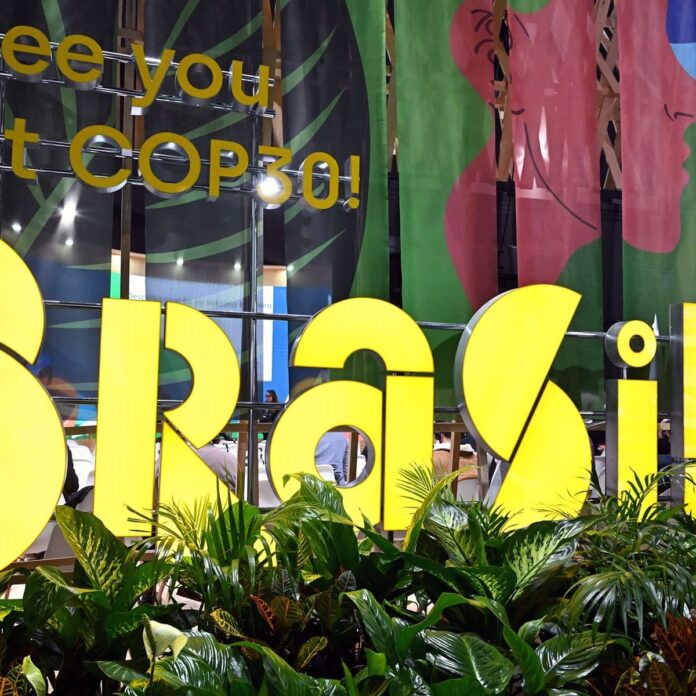As the thirtieth UN Climate Conference opens in Belém, the rhetoric against fossil fuels grows louder. Yet behind the lofty declarations of world leaders lie diplomatic contradictions, energy dependencies, and geopolitical tensions that threaten to turn this summit into yet another performance of climate theatre.
COP30 in Brazil: Ritual Speeches vs. Fossil Realities
More words. Always more words. On Thursday, at the opening of COP30 in Brazil, hosted in the Amazonian city of Belém, global leaders publicly conceded what had long been obvious: the world will not stay below the 1.5°C threshold. A decade after the much-hyped Paris Agreement, only diplomatic varnish remains to mask a failure that is structural, not circumstantial, buried beneath national interests, fossil lobbies, and ideological blindness.
Brazilian President Luiz Inácio Lula da Silva tried to strike a moral tone, calling for a “roadmap to overcome fossil fuel dependency”. He was applauded. Loudly. But applause won’t erase the fact that his government just greenlit offshore oil exploration near the Amazon. Nor will it change the absence of the planet’s biggest polluters, first and foremost, U.S. President Donald Trump, who, now back in office, pointedly skipped the summit.
A Podium for Pledges… Without Substance
On Friday, the parade of political figures continued: European heads of state (Spain, Germany), Southern Hemisphere representatives (Namibia, Caribbean nations), and an army of diplomats took the stage. All echoed a familiar refrain — acknowledging the climate crisis, denouncing past inaction, and pledging to “do more.” Tomorrow. Always tomorrow.
Gaston Browne, Prime Minister of Antigua and Barbuda, didn’t mince words, accusing “major polluters of deliberately destroying our marine and terrestrial environments with toxic fossil gases.” A strong statement, certainly. But nothing in the COP process forces those polluters to change course. These conferences increasingly serve as moral cover — allowing powerful nations to delay meaningful action while projecting virtue.
Europe Lectures… While Importing American Gas
The European Union plays its usual double game. In speeches: moral superiority, carbon neutrality promises, and the goal of slashing emissions by 90% by 2040. In practice: record LNG imports from the U.S., a return to coal in Germany, and “green” subsidies funneled toward industrial giants.
French President Emmanuel Macron called on every country to “develop its strategy to gradually eliminate fossil fuels.” Meanwhile, TotalEnergies continues offshore drilling in Africa and French Guiana — with silent backing from the Élysée. This isn’t mere contradiction; it’s institutionalised cynicism.
Lula’s Dilemma: Between Oil Rigs and Rainforests
As host of this COP30 in Brazil, Lula finds himself in a bind. Earlier this year, his administration approved new oil exploration off the Amazon coast — a decision condemned by environmentalists. Yet just days before the summit, he told the press: “We want to offer a path to reduce fossil fuel use.” And immediately added: “It’s not easy.”
Indeed, this carefully hedged language reflects a strategic balancing act seen across the Global South — the desire for international prestige through climate leadership, without sacrificing national energy revenues. Lula, a seasoned political operator, knows how to play both sides. He’s betting on voluntary commitments and vague pledges to keep Brazil’s green reputation intact, even as oil rigs multiply offshore.
No Global Deal Expected — Just “Voluntary Announcements”
Even Brazil’s own diplomats admit: a formal agreement to phase out fossil fuels is unlikely in Belém. Instead, expect another wave of “voluntary announcements” — methane reduction pledges, pipeline leak management schemes, pilot renewable projects. Technocratic buzzwords, mostly unverified, often unenforced.
Barbadian Prime Minister Mia Mottley proposed an “emergency brake” on methane leaks, pitching it as a win-win that both oil companies and climate activists could embrace. It’s telling: the fight against climate change is now being sold in terms palatable to Big Oil. A compromise of language — and of political will.
A COP in the Jungle… and in the Fog
Symbolically, the COP30 in Brazil carries weight: the first UN climate conference held in the Amazon, the “lungs of the planet.” But beyond the stagecraft, the summit reveals a multilateral system in deep crisis — trapped between energy demands, geopolitical rivalries, and moralistic posturing.
The U.S. is absent. Europe is duplicitous. Brazil is conflicted. And consensus remains elusive. Despite all the climate alarm, the UN process has devolved into a ritualistic procession where pledges matter more than outcomes. Real transition, if it ever comes, will not originate in Belém.



